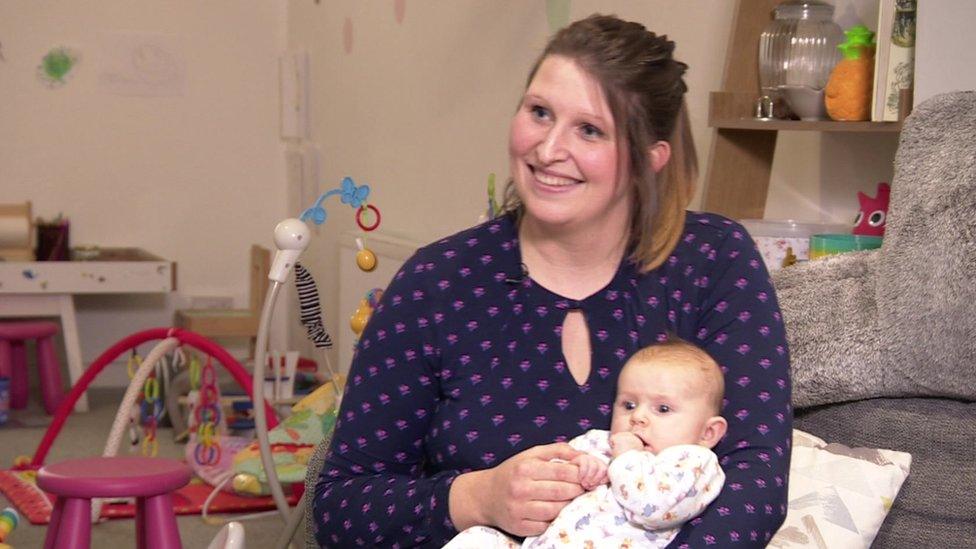Are there benefits to breastfeeding until the age of five?
- Published
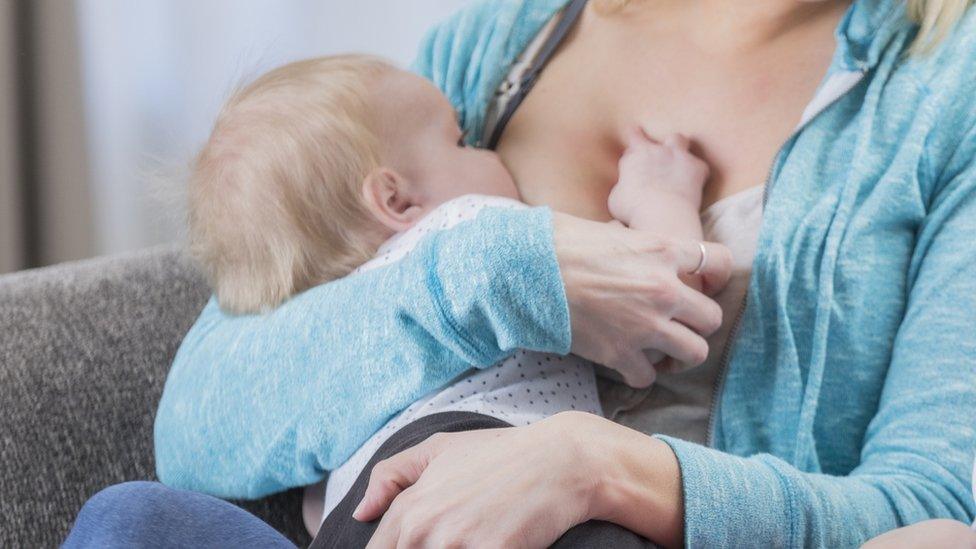
Are there benefits to breastfeeding children up until the age they start school?
A mum who breastfeeds her five-year-old daughter and two-year-old son, sometimes at the same time, says it's good for their health because her children are rarely ill.
Emma Shardlow Hudson, 29, said she is positive it's "because of the antibodies in the milk"., external
Advice in the UK is that women can breastfeed for as long as they and their child want to.
The NHS does not specify a time when women should stop giving their child breast milk.
Breast milk is recommended exclusively (with no other food or drink) for the first six months of a child's life and then alongside other solid food from six months onwards for health reasons.
Breast is best
Experts agree that there are positive health benefits for both the child and the mother.
Breastfeeding is known to provide protection against infections, diarrhoea and vomiting in babies and it is thought to reduce the risk of obesity and other diseases in later life.
For mum, breastfeeding lowers the risk of breast and ovarian cancer.
But for how long?
At present, there isn't enough UK evidence to recommend how long breastfeeding should last so the advice, in general, is open-ended.
"Breastfeeding into your baby's second year or beyond alongside other foods is ideal," says the NHS website., external
It adds: "You and your baby can carry on enjoying the benefits of breastfeeding for as long as you like."
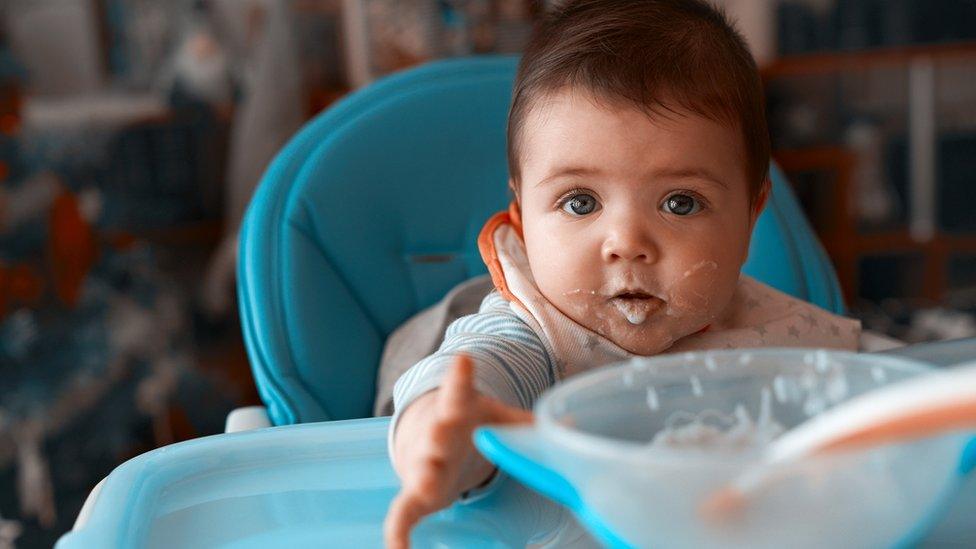
Breast milk can be combined with solids from six months onwards
The World Health Organization, external agrees that breastfeeding should continue "up to two years of age or beyond".
But Dr Max Davie, from the Royal College of Paediatrics and Child Health, says there is limited evidence of additional nutritional benefit beyond the age of two.
"By the age of two, a child should get all the nutrients required through their diet so there is no additional benefit to breastfeeding over this age."
'Does no harm'
However, there are lots of factors involved in any woman's decision to carry on, cut back or stop breastfeeding.
They include going back to work, support from family and friends, and feeling comfortable and confident breastfeeding.
There is also the emotional attachment it can promote between mother and child.
"Breastfeeding is a very personal thing," says Dr Davie.
"It can enhance the mother/child bond and it certainly doesn't do them any harm, so families should do what they feel works best for them."
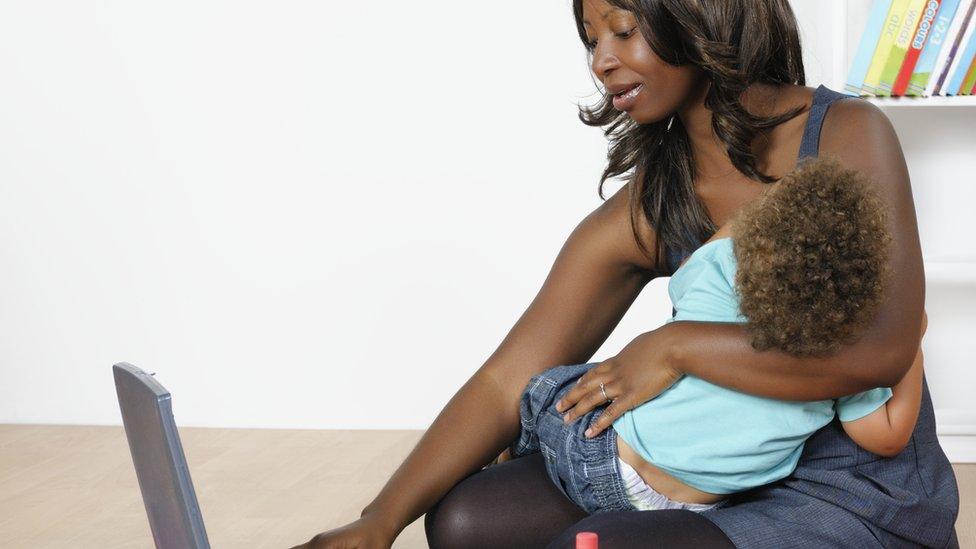
The reality is that around 80% of women in the UK start breastfeeding, but many give up in the first few weeks following the birth of their baby.
By six months of age, only a third of babies are getting some breast milk and this drops to 0.5% by the time they are 12 months old.
According to an international study published in early 2016, the UK has one of the lowest breastfeeding rates in the world.
Child health experts say women can experience problems getting breastfeeding started and they may not always receive enough practical advice and support.
Attitudes to breastfeeding can also lead to women feeling embarrassed and uncomfortable about feeding in public and put them off continuing.
Some women cannot breastfeed or choose not to, and this decision should be respected too, experts say.
- Published12 February 2017
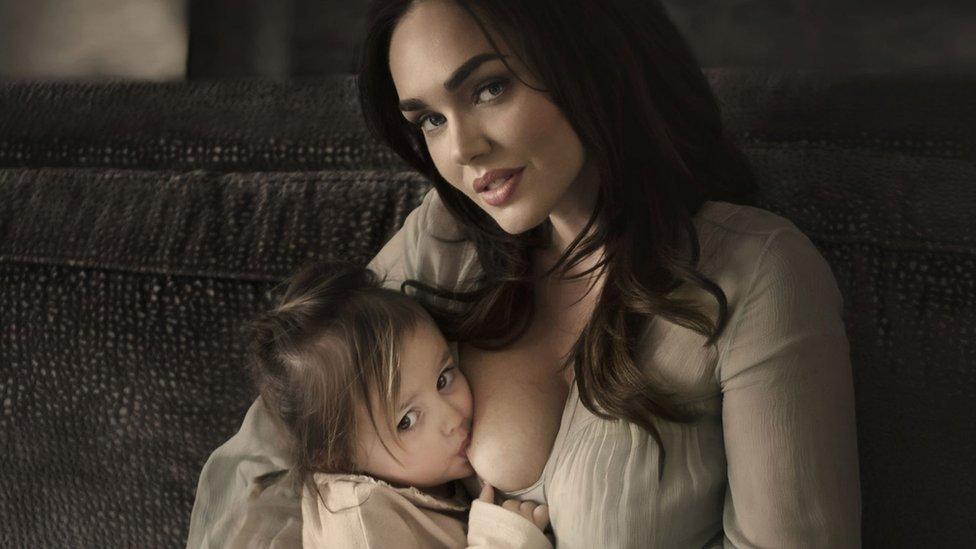
- Published29 January 2016
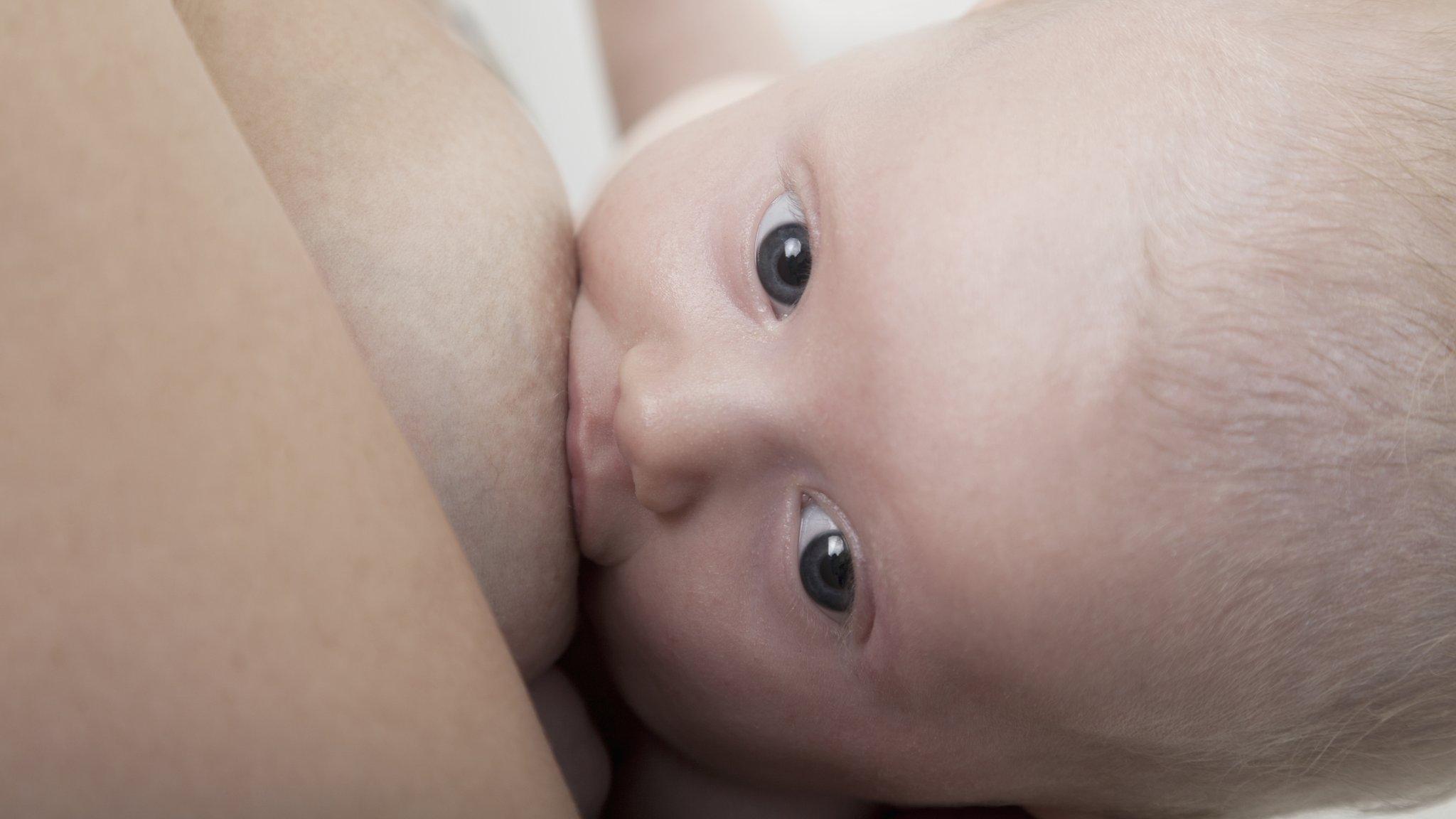
- Published11 December 2017
